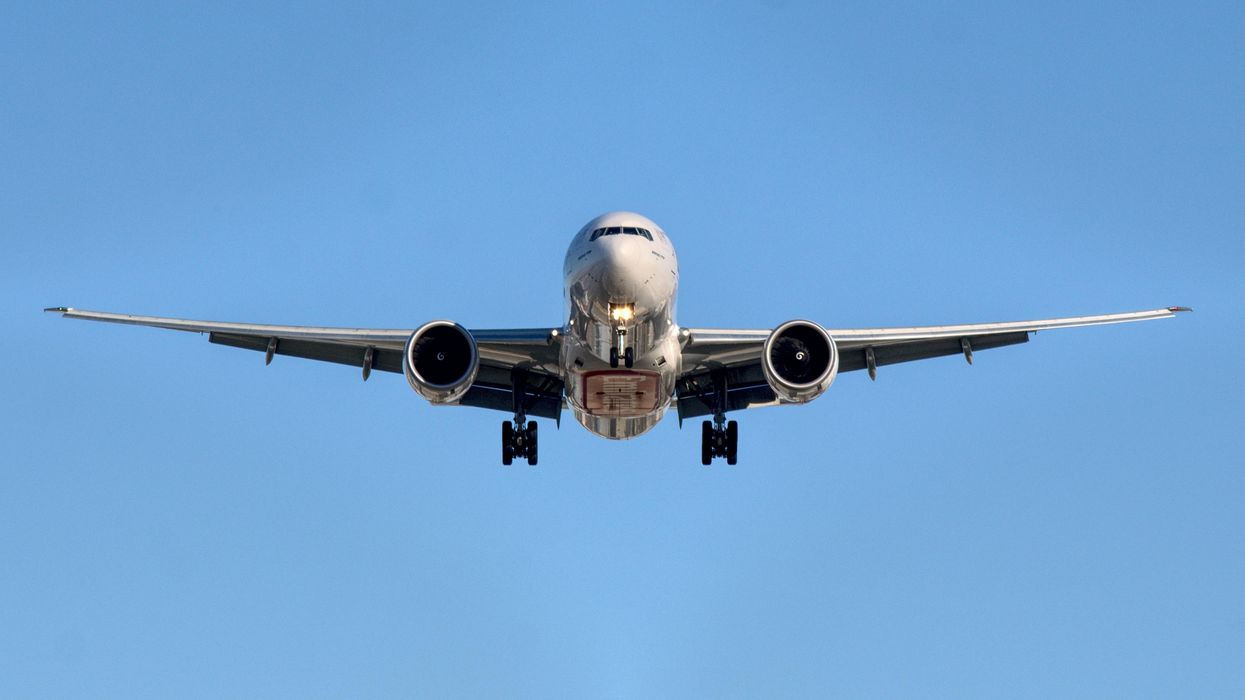
If you've seen videos of people who took part in the U.S. Capitol riot weeping in shock after being barred from boarding their flights home, you may feel as Oscar Wilde did upon reading a tragic passage from a Charles Dickens novel: "One must have a heart of stone to read the death of little Nell without laughing." But schadenfreude is not a good basis for government policy.
In the aftermath of the horrifying Jan. 6 rampage, the Transportation Security Administration said it was "processing hundreds of names with law enforcement agencies for a thorough risk assessment," with an eye toward putting some of them on the federal no-fly list. Incoming Senate Majority Leader Chuck Schumer thinks anyone who was inside the Capitol building should be kept off of airliners. "We cannot allow these same insurrectionists to get on a plane and cause more violence and more damage," he said.
It's an understandable reaction to a poisonous attack on our elected representatives and our democratic system. But it would also be a gross and dangerous expansion of an ill-conceived program with a record of errors and abuses.
The list was created as a way of preventing terrorists from hijacking planes as a handful of fanatics did on 9/11. Its value was always doubtful, because tighter screening at airports, reinforced cockpit doors, air marshals, and a ban on knives have virtually eliminated the chance of such takeovers. These days, the worst thing a jihadist could do on a plane is remove his mask.
TSA says those banned are "a small subset of the U.S. government Terrorist Screening Database (also known as the terrorist watchlist) that contains the identity information of known or suspected terrorists." Note that the no-fly list is not meant to cover ordinary criminals, nut cases, or congregants in the Cult of Trump. It's supposed to block only people on the terrorist watchlist — and not even all of them.
In practice, it has snared some people who posed no evident threat. In December, the Supreme Court allowed three Muslim men who were put on the list for refusing to become FBI informants to sue the responsible agents. The American Civil Liberties Union has represented clients who were blocked from flying for years, even though they had never been convicted of a crime — some of whom the government eventually approved to fly.
The no-fly list is secret, and as of 2016, it reportedly contained some 81,00 people, including about 1,000 who were U.S citizens or legal residents. From those figures, we can deduce that being a convicted criminal, even a violent one, does not prevent you from traveling by commercial airline any more than it prevents you from legally taking a train, driving a car, riding the subway, or hiking the Appalachian Trail. Felons can even get pilot's licenses.
There is no obvious reason that people who invaded the Capitol deserve to be singled out. Does someone who forced his way into a congressional office and stole items pose a greater risk than someone who broke into a house and made off with a laptop? Is someone who smashed a window to enter the Capitol building more likely to try to hijack a plane than someone who smashed a window to protest the killing of George Floyd?
There's a problem that Schumer and Co. might consider before proceeding: If the no-fly list becomes a way of punishing people for violating laws, a lot of Americans stand to lose. Should someone be kept off airliners for joining a Black Lives Matter march that ends with some protesters throwing rocks? If we're going to have a no-fly list, it ought to target potential terrorists, not every mope who lands in the joint.
How airlines deal with passengers they deem disruptive or threatening, of course, should be largely up to them. After the riot, Alaska Airlines permanently banned 14 customers because they were "non-mask-compliant, rowdy, argumentative, and harassed our crew members." Other airlines took similar actions against dozens of unruly passengers. Like any private company, airlines are entitled to banish patrons who make a nuisance of themselves.
People who committed serious crimes on Jan. 6 can be prosecuted, convicted, and incarcerated, some of them for many years. But that's no reason to decree that anyone who invaded the Capitol should be literally grounded for life. The government has plenty of ways to punish those who broke the law. The no-fly list shouldn't be one of them.
Steve Chapman blogs at http://www.chicagotribune.com/news/opinion/chapman. Follow him on Twitter @SteveChapman13 or at https://www.facebook.com/stevechapman13. To find out more about Steve Chapman and read features by other Creators Syndicate writers and cartoonists, visit the Creators Syndicate website at www.creators.com.
- Hometown Papers Demand Expulsion Of GOP Lawmakers Who ... ›
- Sen. Hawley Loses More Major Donors Over Capitol Riot - National ... ›
- No Consequences For Invading State Capitols -- So Rioters Turned ... ›
- New Study Reveals Startling Economic Profile Of Capitol Rioters - National Memo ›
- US charges rioters after viral photos of Capitol siege | News | DW ... ›
- Thirteen Charged in Federal Court Following Riot at the United ... ›
- Pro-Trump Capitol rioters may face up to 20 years in prison | Fortune ›
- Here are crimes rioters who stormed the Capitol could be charged ... ›
- On punishing Capitol rioters 'to the fullest extent of the law' - Los ... ›
- U.S. Capitol riots: The criminal charges that pro-Trump rioters could ... ›
- Capitol Rioters Could Serve Up to 10 Years in Prison | PEOPLE.com ›








